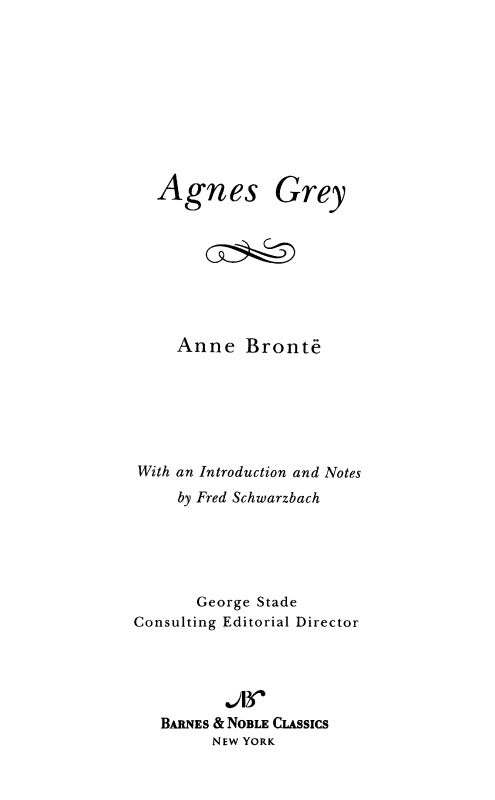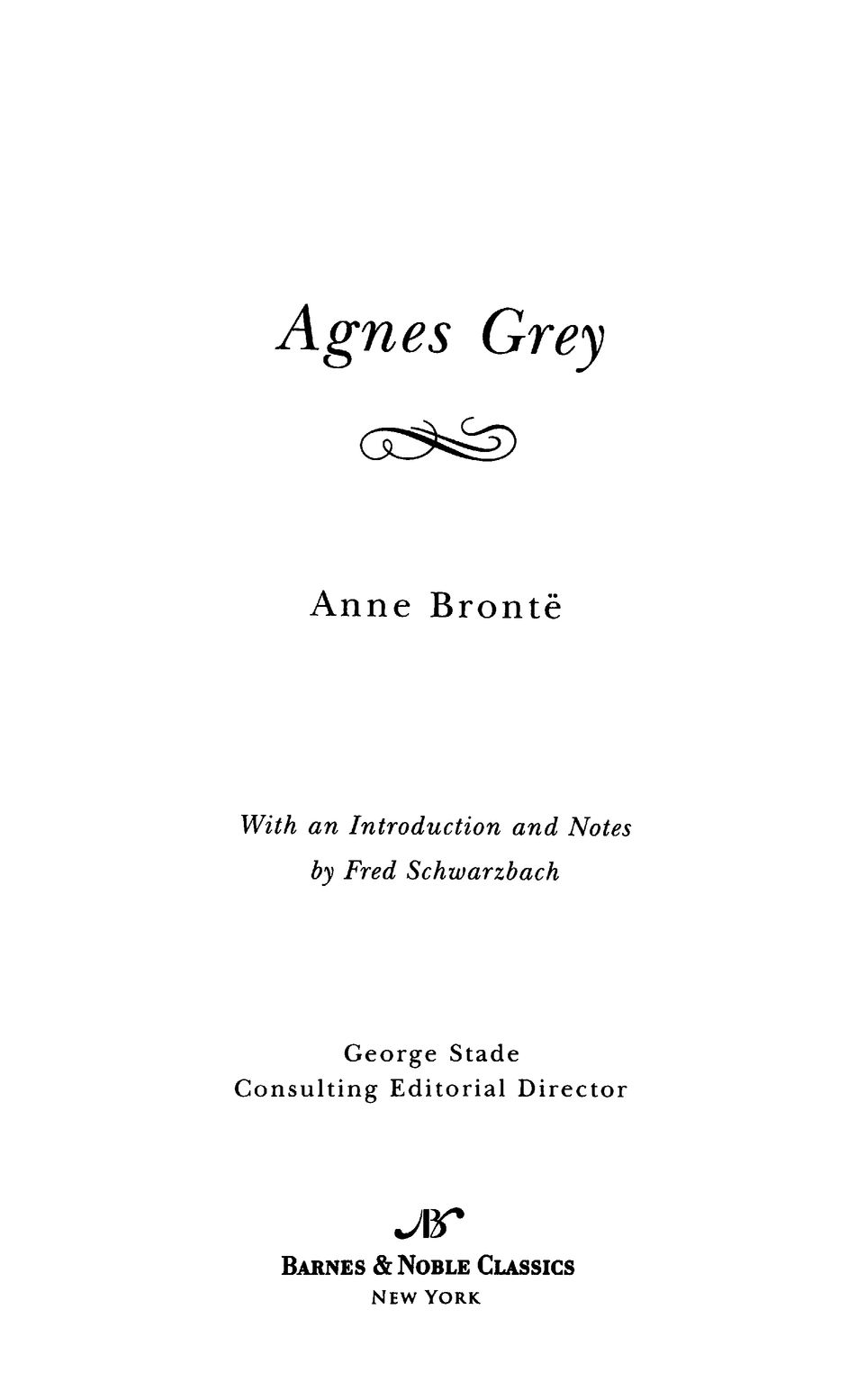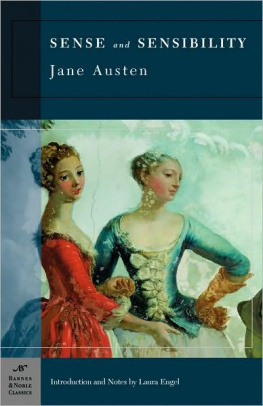
Table of Contents
From the Pages of Agnes Grey All true histories contain instruction; though, in some, the treasure may be hard to find, and when found, so trivial in quantity that the dry, shrivelled kernel scarcely compensates for the trouble of cracking the nut. (page 3)
You a governess, Agnes! What can you be dreaming of? (page 10)
How delightful it would be to be a governess! To go out into the world; to enter upon a new life; to act for myself; to exercise my unused faculties; to try my unknown powers; to earn my own maintenance, and something to comfort and help my father, mother, and sister, besides exonerating them from the provision of my food and clothing; to show papa what his little Agnes could do; to convince mamma and Mary that I was not quite the helpless, thoughtless being they supposed. (page 11)
As an animal, Matilda was all right, full of life, vigour, and activity; as an intelligent being, she was barbarously ignorant, indocile, careless, and irrational, and, consequently, very distressing to one who had the task of cultivating her understanding, reforming her manners, and aiding her to acquire those ornamental attainments which, unlike her sister, she despised as much as the rest. (page 64) I really do detest them all; but Harry Meltham is the handsomest and most amusing, and Mr. Hatfield the cleverest, Sir Thomas the wickedest, and Mr. Green the most stupid. But the one Im to have, I suppose, if Im doomed to have any of them, is Sir Thomas Ashby. (page 77)
And I, as I could not make my young companions better, feared exceedingly that they would make me worsewould gradually bring my feelings, habits, capacities to the level of their own, without, however, imparting to me their light-heartedness, and cheerful vivacity. (page 97)
The human heart is like indian-rubber, a little swells it, but a great deal will not burst it. (page 106)
It is foolish to wish for beauty. Sensible people never either desire it for themselves or care about it in others. If the mind be but well cultivated, and the heart well disposed, no one ever cares for the exterior. (page 134)
Instead of repining, Miss Grey, be thankful for the privileges you enjoy. Theres many a poor clergyman whose family would be plunged into ruin by the event of his death; but you, you see, have influential friends ready to continue their patronage, and to show you every consideration. (page 153)
Oh, no matter! I never care about the footmen; theyre mere automatonsits nothing to them what their superiors say or do; they wont dare to repeat it; and as to what they thinkif they presume to think at allof course, nobody cares for that. It would be a pretty thing indeed, if we were to be tongue-tied by our servants! (page 175)
I shall never forget that glorious Summer evening, and always remember with delight that steep hill, and the edge of the precipice where we stood together watching the splendid sunset mirrored in the restless world of waters at our feetwith hearts filled with gratitude to Heaven, and happiness, and lovealmost too full for speech. (page 192) 
Anne Bront Anne Bront was born on January 17, 1820, into one of English literatures most remarkable families. The youngest of Patrick and Maria Branwell Bronts six children, Anne was only a year old when her mother became ill with cancer. Within months, Maria Branwell Bront died, the first of many early deaths that would ultimately decimate the large family. Patrick Bront, by then a curate at Haworth, turned to his wifes sister, Elizabeth Branwell, for help in raising his children; Anne grew very close to her aunt. In 1825 the eldest Bront children, Maria and Elizabeth, died within weeks of one another, leaving Charlotte, Branwell, Emily, and Anne. The babies of the family, Emily and Anne created an imaginative kingdom called Gondal that they filled with fantastic characters and stories. Although she attended school at Roe Head for two years, Anne was primarily educated at home, where the children studied literature and poetry as well as the Bible. An illness at school prompted her return to Haworth in 1837 and provoked a religious crisis, raising doubts and concerns Anne would revisit later in life. Seeking financial independence, Anne found work in 1839 as a governess at Blake Hall, near Mirfield, caring for the unruly children of Joshua Ingham. Within a year, she had left the Inghams and was employed as governess for the family of Reverend Edmund Robinson at Thorp Green, near York. She remained in their household for five years, each summer accompanying the family to the seaside resort of Scarborough. Away from her family, she often turned to poetry for solace, sometimes writing her own. In 1843 Anne secured a position with the Robinsons for her brother, Branwell. In June 1845 Anne resigned and returned to Haworth, followed shortly by Branwell, who, under the shadow of a scandal, was dismissed. Back home, Annes literary career was initiated by Charlottes enthusiastic discovery of Emilys Gondal poems. The sisters each agreed to contribute poems to a collection for publication. Under the pseudonyms Currer, Ellis, and Acton Bell (Charlotte, Emily, and Anne, respectively), the Bronts published the collection in 1846 at their own expense, to positive criticism but dismal sales. Undaunted, the sisters turned their attentions to novel writing, each bringing a unique and highly inventive style to the effort. In 1847 Annes labors produced Agnes Grey, published jointly with Emilys Wuthering Heights in December of that year by Thomas Cautley Newby. Charlottes Jane Eyre had been published two months earlier by a more prestigious house, Smith, Elder and Co., to great success, overshadowing her sisters novels and surpassing them in acclaim. Less sensational in its subject matter than either Jane Eyre or Wuthering Heights, Annes Agnes Grey received relatively little attention. Nonetheless, Anne began work immediately on her second novel, The Tenant of Wildfell Hall (published by Newby in 1848), which was a commercial and critical success. The novels frank depictions of alcoholism and violence shocked readers but fueled its popularity. Wild speculation about its mysterious authorship prompted Charlotte and Anne to disclose to their publishers their true identities. In September 1848, Branwell Bront died, his body destroyed by illness and alcohol. In December, Emily Bront died of tuberculosis, following a rapid decline. Anne herself became ill with influenza, then tuberculosis. Though weak and frail, she determined to travel once more to her beloved Scarborough, ostensibly for the curative powers of the sea air. The trip proved her last; Anne Bront died on May 28, 1849, and was buried in Scarborough. The World of Anne Bront and Agnes Grey |











